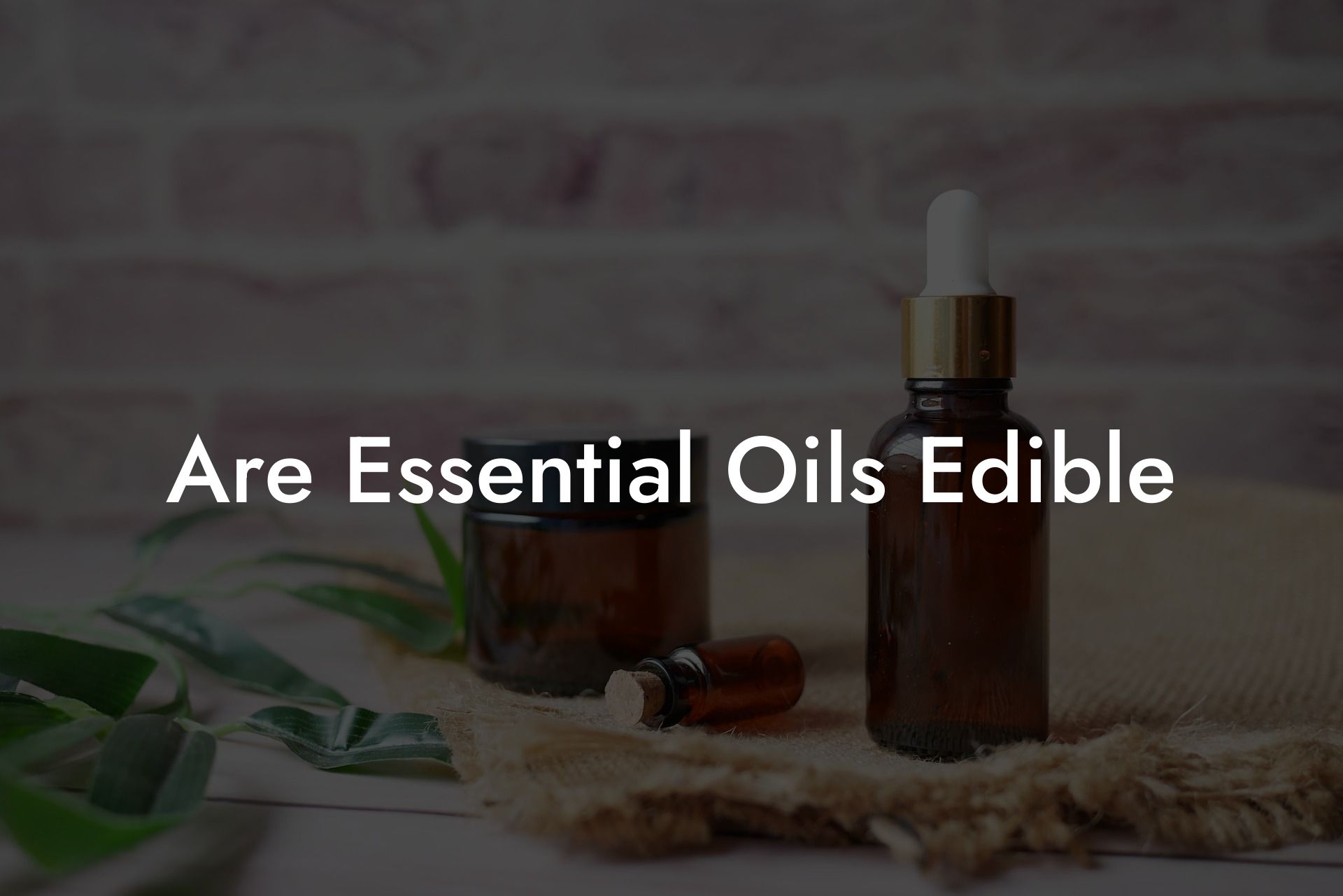Are essential oils edible? This is a question that many people ask when they first discover the world of aromatherapy and natural remedies. Essential oils are widely used for their therapeutic properties, but consuming them can be a whole different story. In this article, we’ll dive deep into whether or not essential oils are edible, which ones are safe to ingest, and how to safely use them in your culinary creations.
Table of Contents
What are Essential Oils?
Essential oils are highly concentrated plant extracts that contain the plant’s natural fragrance and therapeutic properties. They are typically extracted through steam distillation or cold pressing processes and used for aromatherapy, massages, and in various DIY natural remedies.
Can Essential Oils Be Edible?
The short answer is: some essential oils are edible and considered safe for consumption, while others are not. It is crucial to understand that not all essential oils are created equal, and their safety for oral ingestion depends on their purity and quality.
How to Determine if an Essential Oil is Edible
To safely ingest essential oils, you should consider the following factors:
1. Quality and Purity: Always choose high-quality, pure essential oils from reputable brands like Oshu Oils. Look for oils that are labeled as food grade or have a supplement label, indicating they meet the necessary safety standards.
2. Potency: Keep in mind that essential oils are highly concentrated, and a little goes a long way. Use them sparingly, and always follow the recommended dosage guidelines.
3. Labels and Precautions: Read the labels on your essential oils carefully and adhere to any safety precautions mentioned, such as avoiding certain oils during pregnancy or limiting their use for children.
Edible Essential Oils and Their Uses
Below are some common essential oils that are considered safe to ingest and can be incorporated into your cooking:
1. Lemon: Perfect for adding a citrusy zest to your dishes, lemon essential oil can be used in salad dressings, marinades, or even in baking recipes like lemon bars.
2. Peppermint: Peppermint essential oil can be ingested to support digestion, freshen breath, and make a delicious addition to your favorite tea or hot chocolate.
3. Lavender: Known for its calming properties, lavender essential oil can add a floral touch to your recipes, like shortbread cookies or homemade honey-lavender ice cream.
Are Essential Oils Edible Example:
Recipe: Lemon-Peppermint Water
Ingredients:
– 8 cups of water
– 1 drop of lemon essential oil
– 1 drop of peppermint essential oil
Instructions:
1. Fill a large pitcher with water.
2. Add one drop of both lemon and peppermint essential oils to the water. Stir to combine.
3. Refrigerate the water for at least 30 minutes to allow the flavors to infuse and enjoy!
Now that you know that some essential oils are indeed edible, you can explore incorporating them into your kitchen creations and natural remedies. Remember always to choose high-quality, food-grade essential oils and follow the proper guidelines for safe consumption. As you experience the culinary world of edible essential oils, share your discoveries with others who may be curious by sharing this article. Be sure to explore our other guides on Oshu Oils and our exclusive range of essential oils to enhance your overall wellbeing.





















